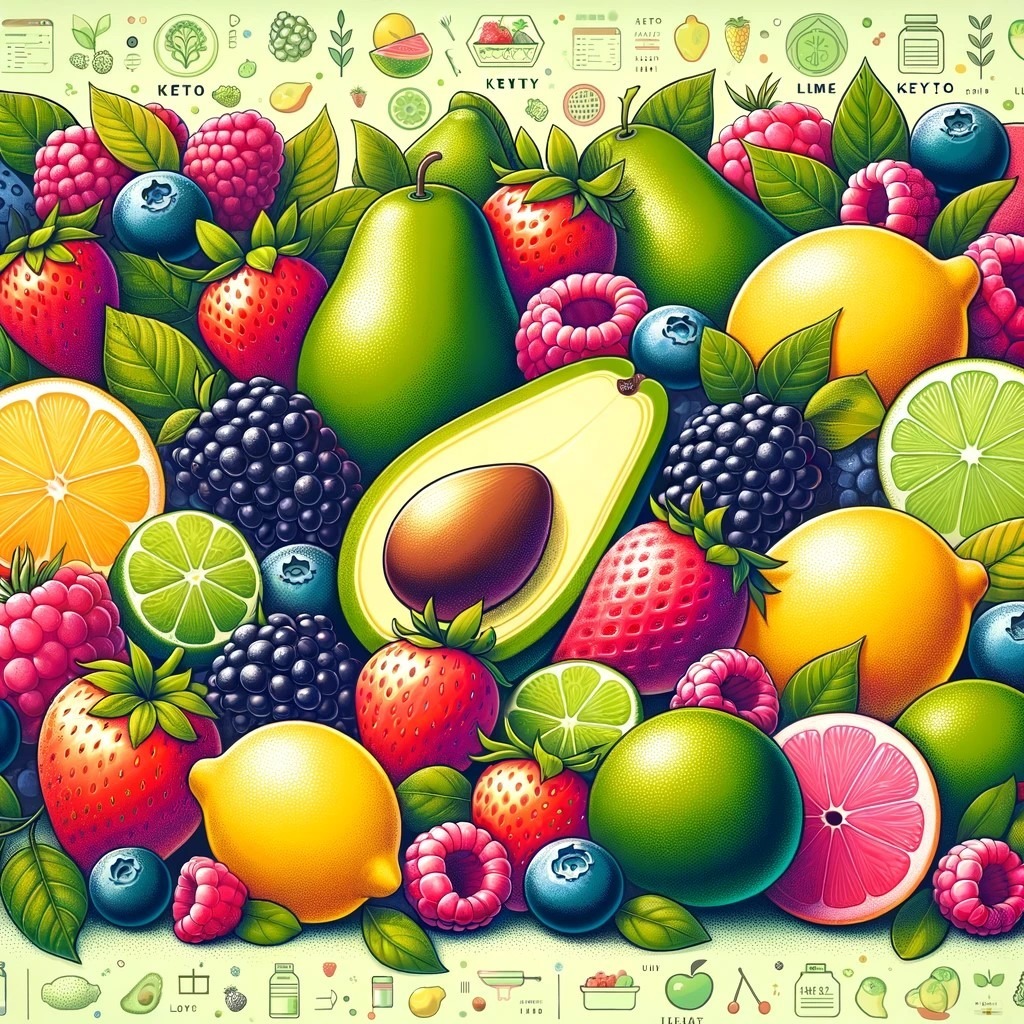KETO: WHAT FRUIT IS ALLOWED?
There’s an English saying, “An apple a day keeps the doctor away,” suggesting that consuming a portion of fruit daily helps us stay healthy. While generally true, the ketogenic diet imposes certain restrictions. It’s important to carefully select the type of fruit you eat and its quantity since some fruits contain more carbohydrates than others. Here, you’ll learn which fruits are keto-friendly.
Fruits Suitable for Keto
The ketogenic diet leans more towards a variety of vegetables, as they offer a wider range of low-carb options. It primarily includes nuts, dairy products, meat, and fish. Fruit is healthy and shouldn’t be excluded from your diet but should be consumed sparingly or in small quantities. An apple as a daily snack isn’t a sustainable option for those on a keto diet due to its 11g of carbohydrates per 100g. In contrast, blueberries contain only half that amount, and avocados even less, with only 2g of carbohydrates per 100g of fruit. As you can see, there are significant differences. We’ll show you which fruits are particularly suitable for keto and provide guidance.
Keto-Friendly Fruits
Avocado
Technically, avocado feels more like a vegetable, but it’s actually not – at least not by definition. That’s why it’s included in this list. Botanically, it’s a berry and is often called a butter fruit due to its high fat content. With only 3.4g of carbohydrates per 100g, avocados are doubly suitable for keto: they’re high in fat and low in carbs.
Lemons & Limes
These aren’t fruits you’d typically slice up and eat directly due to their sour taste. Instead, they’re great for adding a zest to salads or cereals or for infusing summer flavors into drinking water. Lemons and limes are also champions in the low-carbohydrate game, containing less than 4g of carbs per 100g of fruit.
Berries
Blueberries are not only full of antioxidants but also have relatively few carbohydrates compared to other fruits. With an average of 7g of carbs per 100g, they’re a good choice. Strawberries and raspberries also have about 6g of carbs, while blackberries have even less, with only 3g per 100g of fruit. Currants and all dried berries, however, are not recommended. Dried fruit contains a lot of carbohydrates, as do dates.
Cantaloupe & Watermelon
Never heard of cantaloupe? You’ve likely seen it in the supermarket. It’s very sweet yet has a keto-friendly 8g of carbs per 100g of fruit and is known for its rich flavor. Watermelon makes your mouth water: this juicy fruit brings back memories of happy children in summer with fruit juice dripping down their faces. It’s also suitable for a ketogenic diet, with 8g of carbs per 100g, making it a good addition to your diet.
Nectarines, Peaches & Apricots
These summer fruits contain around 10g of carbohydrates per 100g of fruit and, therefore, shouldn’t be completely excluded from a keto diet but enjoyed in moderation. They should be an exception rather than a daily addition to your cereal – you’re better off with berries in this case.
The Bottom Line
It all depends on the type and amount of fruit. It’s important to eat a varied and balanced diet, even on a ketogenic diet, but fruit and keto are only moderately compatible. Prefer berries, avocado, and low-carb fruits in your diet plan – fruits contain many vitamins, fibers, and offer several benefits for the body. And if you’re craving something sweet that won’t kick you out of ketosis, you can always rely on our Keto On The Go options.






